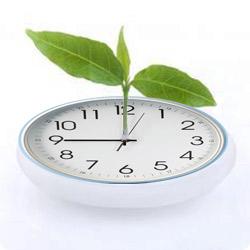AEROBIC CAPACITY: Your body's ability to process oxygen from the air and move it into your bloodstream and throughout your body increases with exercise - the higher your aerobic capacity, the younger your biological age.
BLOOD PRESSURE: The level of pressure exerted by the blood on the blood vessel walls when blood is being pumped throughout the body- the lower the blood pressure, the more efficient the pumping system and therefore the younger your biological age.
BONE DENSITY: The density of the mineral content in your bones- the stronger your bones, the younger your biological age.
BODY TEMPERATURE REGULATION: Your body's ability to maintain its internal temperature- the better your body is at keeping a constant body temperature (regulated by thyroid gland) the younger your biological age.
BLOOD SUGAR TOLERANCE/INSULIN LEVEL: Your body's ability to control and process blood sugar (glucose) from food via the hormone insulin and distribute through your bloodstream to your body for fuel- the lower your fasting blood glucose and insulin, the younger your biological age.
BODY FAT %: The percent body fat of your body - the lower your body fat, the higher your lean muscle and therefore the younger your biological age.
CHOLESTEROL/HDL RATIO: The ratio of bad cholesterol (LDL) to good cholesterol (HDL): the less bad cholesterol (LDL less than 100) and the more good cholesterol (HDL greater than 40) the younger your real age.
MUSCLE MASS: This is the amount of lean muscle tissue on your body. The more muscle mass, the younger your biological age.
RESTING HEART RATE: The lower your resting heart rate, the more efficient your heart is at pumping blood and the younger your body age.
STRENGTH: Your ability to resist weight- the stronger you are, the younger your biological age.
Each of these 10 biomarkers of ageing can be controlled and/or changed by you with the choices you make everyday. For example, you can choose to eat fresh fruits and vegetables instead of high-fat fast foods, you can choose to drink plenty of pure water instead of high-sugar soft drinks, you can choose to take a walk or an aerobics class instead of reclining all evening on the sofa in front of the TV, or you can choose to deal with the stress in your life with massage, yoga or meditation instead of losing your temper on a daily basis.
Exercise and good nutrition are two things that directly affect each of the 10 biomarkers of aging. Moreover, according to a recent article on WebMD Medical News, physically active people may be a decade younger, biologically, than sedentary people. Just 30 minutes of moderate-intensity exercise (brisk walking) at least 5 days per week has anti-aging effects.



